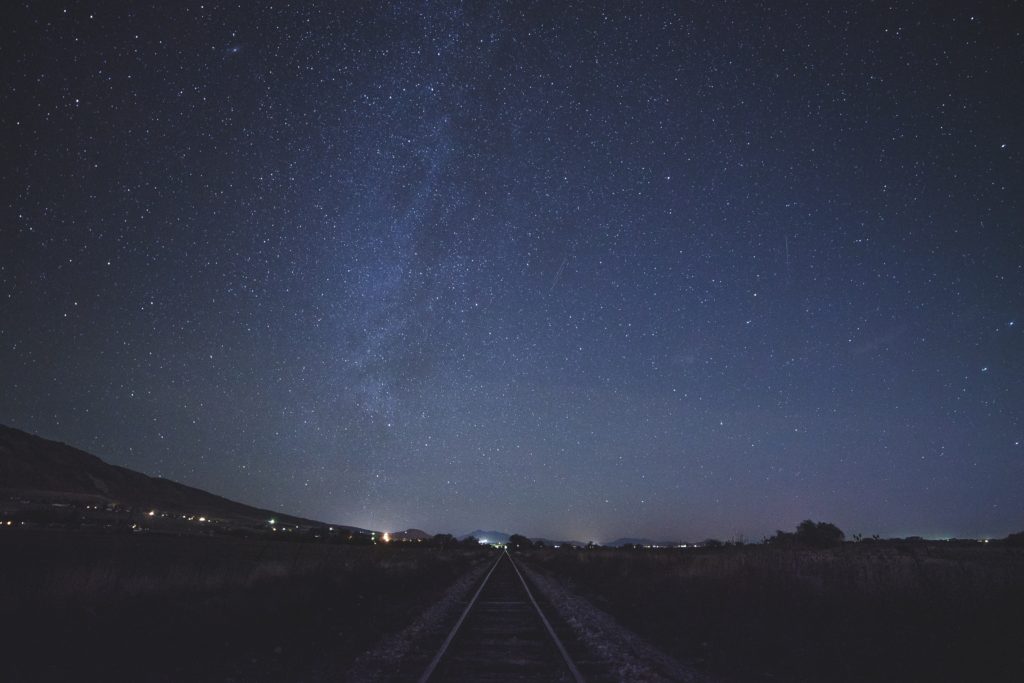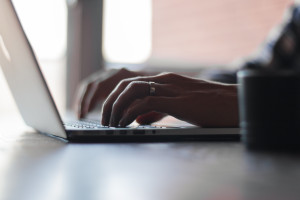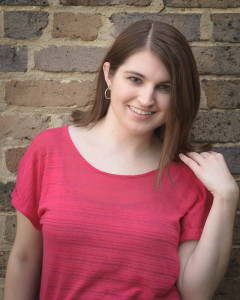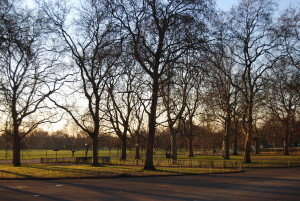When I was seven, my family moved from California to Washington State. At that age, you don’t question why the palm trees are turning to evergreens, or why there is suddenly snow. You accept it. Sometimes I miss the days of taking the hand of change willingly and giving it a squeeze, already thinking about the fun in store for us together.
I’d always shared a room with my younger brother, but in the new house, we had our own rooms. Mine had red carpet and two closets. From time to time, I would rig one of them up as a cave or outer spaces, using my trusty tape recorder and a few well chosen props. Tights from the clothes bar were stalactites and I always included a flashlight for closer examination. Mostly though, I would count on my audience to picture the asteroid fields, or the underground rivers. Once ready, I would send my mom or brother into the closet, turn on the tape recorder and wait expectantly for their reactions. During the day, I loved the idea of a room all my own, with a lock on the door. Still, at night, I wanted someone to talk to, I hated being alone.
But, I was a big girl. I was old enough to have my own room. It was something prized by all of the little girls in the books I loved to read. It signaled that they were their own people, and as they grew up, more exciting things were going to start happening to them. In those days, everything was linear. I fully expected that I would go from my own room to becoming a babysitter, driving my own car, and spending evenings with a high school boyfriend who called on my landline and kissed me at the movies.
At night, I tried to focus on the plan. I needed to stay in bed, there was nothing to be scared of. The girls in my books didn’t get scared for no reason, they weren’t afraid to be alone in the dark. I couldn’t see my beautiful red carpet, or take comfort in my brother’s even breathing. The normally inaudible sound of the living room clock sounded ominous, and every creak signaled an intruder.
My fears were not helped by the fact that someone did break into that first Spokane house. We weren’t home at the time, but when we returned from the store and found the door open, the smell of cigarette smoke still hung in the air. It seemed perilously close to danger, to what I’d always feared would happen. My parents kept saying that they were thankful that the thief had only taken things, that we were all safe, but they took more than things, they took away my ability to whisper in the middle of the night: “Nothing bad will happen.” The red carpet did not stop calamity.
 In that house, we lived close to a set of train tracks. At first, I noticed every time they sounded their whistle, but after a while, it became part of the soundtrack of my life, so woven into the texture of my days that I would never have mentioned it. It would have been like mentioning that my eyes were green.
In that house, we lived close to a set of train tracks. At first, I noticed every time they sounded their whistle, but after a while, it became part of the soundtrack of my life, so woven into the texture of my days that I would never have mentioned it. It would have been like mentioning that my eyes were green.
It was different at night. There were few sounds in our neighborhood, but I would strain to listen for an intruder or an animal. I contemplated which of my closets to hide in, should the worst happen. I wondered how expensive it would be to turn one of them into an elevator that could take me to the roof in times of trouble. Then a train would go by.
When the whistle danced into the night, it felt like a secret message for me. The blasts were long and shrill, sometimes they almost sounded hoarse. The tension in my chest would ease and I would start breathing normally again. No matter how fast my thoughts were running, they would slow, settling into a comfortable rhythm.
When we moved from that house, away from the train tracks, I worried about the quiet nights. What would I do in the new house, the new room, to combat my fear? I put on my pajamas and settled in to sleep, apprehensive. The whistle blew, more faintly, but I could still hear it. It filled my ears with an audible warmth. This whistle was lower, a closer cousin to a foghorn than my wooden train whistle. I still can’t tell you where the train tracks were near that house, but they were close enough. I fell asleep, lulled by the familiar sound in a new place.
Once I started treating my anxiety, my therapist and I quickly realized that I’m quick to jump to the worst case scenario. I wanted, I still want, to go back and comfort that little girl, but sometimes I’m not sure what I’d tell her. “I made it this far,” I could say. “I’m still scared sometimes.” I’ve learned that life isn’t linear, that the job and the boyfriend don’t follow having your own room. That sometimes the thing you feared the most happens, and you survive. I’ve learned that even if you pride yourself on being deeply logical, you can be calmed by something that has nothing to do with you, something that never promised to keep you safe. Even now, in bed with my lights out, when I hear a train whistle, the tension drains from my body. I accept that I am safe, and go to sleep.



